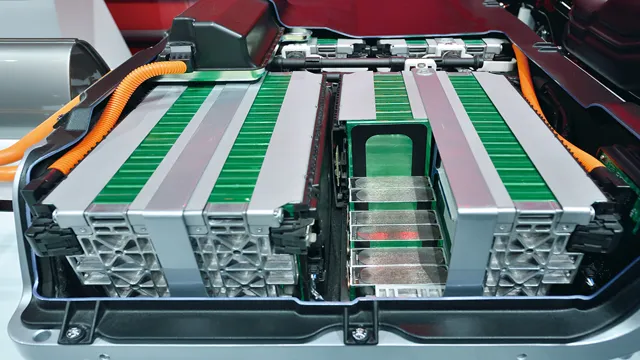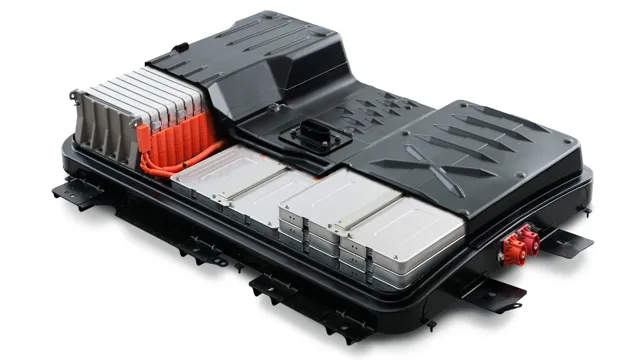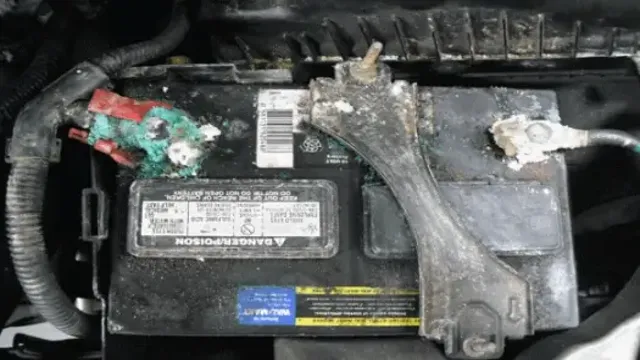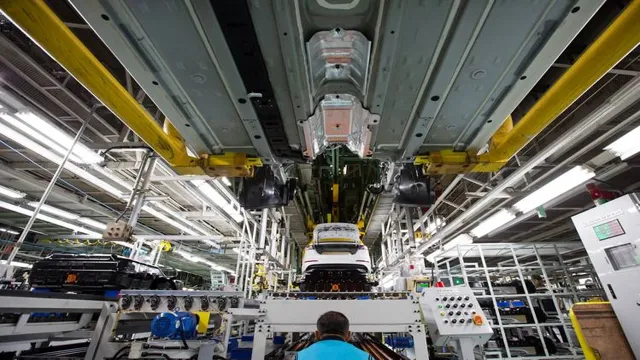Discover the Latest Breakthroughs in Electric Car Battery Innovation: News and Updates for 2020
Electric car battery technology has been a hot topic for the past few years, as more and more drivers make the switch to eco-friendly transportation options. In 2020, there have been several exciting developments in this area that could revolutionize the way we think about electric cars. From longer-lasting batteries to faster charging times, manufacturers are making strides to address some of the biggest concerns consumers have about electric vehicles.
With so much buzz surrounding these advancements, it can be difficult to keep up with the latest news and breakthroughs. In this blog post, we’ll take a closer look at some of the most significant electric car battery news to come out of 2020, and what it means for the future of sustainable transportation.
Global Electric Car Sales Statistics
If you’ve been following the electric car battery news in 2020, then you’ve probably come across some astounding statistics on the global sales of electric vehicles. Electric car sales have surged in recent years, with a 40% growth in 2019 alone, and projections suggest continued growth in 2020 and beyond. In fact, some experts predict that by 2025, electric vehicles will make up a staggering 25% of global car sales.
China leads the way in EV adoption, with over a million electric cars sold in 2018, followed closely by the United States and Europe. Norway, known for its unwavering commitment to sustainable transportation, currently has the largest market share of electric cars, with over 55% of new car sales being electric or plug-in hybrid vehicles. As more and more governments around the world pledge to phase out the production of gas-powered vehicles, it’s clear that the future of cars is electric.
Breaking Down the Numbers
Global electric car sales have been steadily on the rise in recent years, with more drivers opting for sustainable and environmentally-friendly transportation options. According to the International Energy Agency, over 2 million electric cars were sold worldwide in 2019, representing a 40% increase from the previous year. China was the leading market for electric car sales, accounting for over half of the global sales, followed by Europe and the United States.
Electric car sales are expected to continue their upward trajectory as more countries and cities implement policies to support the adoption of clean transportation. It’s clear that electric cars are here to stay and will play an increasingly important role in shaping the future of the automotive industry, as well as the planet’s overall sustainability.

Top Electric Car Models of the Year
Global Electric Car Sales Statistics As more and more people become aware of the environmental benefits of electric cars, the demand for these vehicles has skyrocketed. According to recent global electric car sales statistics, the market share of electric vehicles has tripled within the last three years alone. In 2020, the global electric car market share rose to
2%, with around 3 million electric vehicles sold. This increase was due in part to significant advances in battery technology and the launch of several new electric car models. The top electric car models of the year include the Tesla Model 3, Nissan Leaf, and the Renault Zoe.
These models have dominated the global market and accounted for a significant portion of the total electric car sales in 2020. In addition to their environmental benefits, electric cars are also becoming more affordable, with many manufacturers offering competitive prices for their electric model lineups. As governments around the world continue to implement policies to reduce carbon emissions, it is expected that the demand for electric cars will continue to rise, encouraging further development of the technology and models in this market.
Advancements in Battery Technology
2020 has witnessed some significant advancements in electric car battery technology, signaling a bright future for the electric vehicle industry. Most electric car manufacturers are now employing Lithium-ion batteries, which have a higher energy density and longer lifespan than previous battery technologies. The latest battery models allow drivers to travel longer distances without needing to stop and recharge.
Researchers are also experimenting with solid-state batteries, an alternative to Lithium-ion batteries, which are safer, more efficient, and environmentally friendly. Reports suggest that Tesla is already developing solid-state batteries that could significantly improve battery performance, potentially reducing the cost of electric vehicles. With these groundbreaking advances, the future of electric cars is looking brighter than ever before.
New Battery Materials and Designs
Advancements in Battery Technology have led to the development of new battery materials and designs that promise to revolutionize the energy storage industry. One of the most promising materials is Graphene, a superlight, strong and conductive material that can be used in batteries to improve energy density and enhance performance. Another design innovation is the Solid-State Battery, which uses a solid electrolyte instead of a liquid one, making the battery more stable and safer to use.
Furthermore, research is ongoing into the development of lithium-air and sodium-ion batteries that promise to have even higher energy densities than traditional lithium-ion batteries. These advancements in battery technology have the potential to transform the energy landscape by enabling the development of cheaper, lighter, and more efficient energy storage solutions. Imagine having your phone’s battery last for weeks without needing a recharge or driving an electric car for hundreds of miles without needing to stop.
It’s all possible with breakthrough battery technology.
Battery Cell Manufacturing Innovations
Battery cell manufacturing has come a long way in recent years, thanks to new advancements in battery technology. One of the most exciting developments has been the use of solid-state batteries, which replace the traditional liquid electrolytes with a solid material. This not only reduces the risk of leakage and fire, but also allows for greater energy density and faster charging times.
In addition, new manufacturing techniques like roll-to-roll processing and additive manufacturing are making it easier to produce high-quality batteries at scale. With these innovations, we can expect to see even more progress in the realm of electric vehicles, portable electronics, and renewable energy storage. So what’s next for battery cell manufacturing? Only time will tell, but it’s clear that the future is looking bright.
Implications for Electric Car Prices and Performance
The advancements in battery technology for electric cars have significant implications for both prices and performance. With the latest developments, electric car prices are expected to drop considerably in the near future, making them more accessible to the general public. This is because the cost of batteries and their production has decreased substantially due to innovative techniques used in their manufacturing.
Along with reduced prices, these recent advancements allow the batteries to last longer and provide greater energy density, leading to increased performance. This means that electric cars can now travel further on a single charge without compromising their speed or power. Therefore, electric vehicles are now becoming an increasingly attractive option for drivers who are looking for a more eco-friendly and affordable mode of transport.
As a result, the demand for electric cars is set to soar in the coming years, especially in countries that are promoting sustainable energy sources and phasing out gas-powered cars.
Government Incentives and Policies
If you’ve been keeping up with electric car battery news in 2020, then you know that governments around the world are offering incentives and implementing policies to encourage the adoption of electric vehicles (EVs). For example, in the United States, the federal government offers a tax credit of up to $7,500 for EV purchases, while many states offer additional incentives such as rebates and tax credits. Some countries, like Norway and the Netherlands, have even set targets to phase out gas-powered vehicles entirely.
Governments are also investing in EV charging infrastructure, with plans to build hundreds of thousands of charging stations in the coming years. The hope is that these policies and incentives will not only reduce emissions and combat climate change, but also create jobs and stimulate economic growth in the EV industry. So if you’re considering purchasing an electric car, now might be a good time to take advantage of these incentives and join the growing number of people making the switch to clean, green transportation.
Countries with the Strongest Electric Car Support
When it comes to electric car support, some countries are leading the way with government incentives and policies that encourage drivers to make the switch to electric vehicles. Norway ranks at the top of the list with numerous benefits for electric car owners such as no purchase tax, lower yearly road tax, and free charging and parking in public spaces. The Netherlands also provides financial incentives to buyers of electric vehicles, including a 4,000 euro subsidy and exemption from road tax.
Germany offers a purchase bonus for electric cars and hybrids, plus various tax incentives and discounted rates for charging stations. Other countries with strong electric car support include France, the United Kingdom, and China. With these kinds of policies and incentives in place, it’s no wonder that more people are becoming interested in making the switch to greener transportation options.
Updates on Tax Credits and Rebates
Government tax credits and rebates are a great way to save money on your taxes and improve your home’s energy efficiency. Many federal, state, and local governments offer incentives for homeowners who install energy-efficient appliances, solar panels, or insulation. These tax credits and rebates can help offset some of the initial costs of these upgrades, making them more affordable for homeowners.
Additionally, some states offer rebates for the purchase of electric vehicles, which can help offset the higher purchase price of these vehicles. It’s essential to stay up-to-date on government incentives and policies to take advantage of these opportunities and save money on your taxes. A quick search online or a call to your state or local government can provide you with the information you need to start saving today.
Future of Electric Car Batteries
Electric car battery news 2020 has been buzzing with various advancements that are set to shape the future of electric vehicles. A major development is the emergence of solid-state batteries that are poised to offer higher energy density, faster charging capabilities, and improved safety features compared to their liquid counterparts. This technology is currently being researched and tested by various companies, including Toyota and BMW, with expectations of commercialization within the next five years.
Another notable development is the shift towards circular economies, which seeks to recycle and reuse batteries rather than disposing of them after their lifespan expires. This move not only reduces waste but also lowers the cost of battery production, making electric vehicles more affordable to consumers. Such measures are critical in enhancing the mass adoption of electric vehicles globally and accelerating the journey towards sustainable transport.
Predictions for the Next Decade and Beyond
The future of electric car batteries is quite promising as researchers and engineers continue to improve their performance while reducing their costs. Predictions show that electric vehicle batteries will continue to shrink in size and become cheaper to produce. As lithium-ion batteries have been dominating the market for the past decade, car manufacturers are now looking for alternatives that have even better energy density.
Solid-state batteries are one of the most promising candidates as they have the potential to increase vehicle range, improve safety, and reduce charging time. Moreover, recycling and reclaiming the valuable components of the batteries are also expected to play a significant role in the industry. Hence, the future of electric car batteries looks impressive, and it seems that their continued development will result in better performance, longer lifetimes, and lower costs in the years to come.
Potential Impact on the Auto Industry
The future of electric car batteries has the potential to drastically impact the auto industry. With the push towards more environmentally friendly vehicles, electric cars have become increasingly popular. However, one of the main drawbacks has been the limited range of the battery.
This is where advancements in battery technology come into play. Companies are currently researching and developing batteries that have longer ranges, are more efficient, and are less expensive. If successful, this could change the game for electric cars and make them more practical for everyday use.
Not only would it make them more appealing to consumers, but it could also increase demand for electric vehicles and potentially decrease the demand for traditional gasoline-powered cars. This shift in demand could have far-reaching effects on the entire auto industry, from car manufacturers to fuel providers. Only time will tell how these advancements in battery technology will shape the future of transportation.
Conclusion
In 2020, the future of electric car batteries is brighter than ever before. With advancements in technology, we can expect batteries with longer ranges, faster charging times, and improved durability. Not only are these developments exciting for motorists, but they also represent a vital step towards a greener planet.
So, let’s buckle up and look forward to a future where driving is cleaner, smarter, and more exhilarating than ever before!”
FAQs
What are the latest developments in electric car battery technology in 2020?
In 2020, various companies such as Tesla, GM, and Volkswagen revealed updates on their electric car battery technology. Tesla announced a new battery cell design that promises to increase range and reduce cost, while GM revealed a new battery platform that will power the company’s future electric vehicles. Volkswagen also unveiled a new prismatic cell design for its electric cars.
How long does it take to charge an electric car battery in 2020?
The charging time for an electric car battery largely depends on the battery capacity and the charging station type. A typical electric car may take anywhere from 30 minutes to 12 hours to fully charge depending on the charging station. However, with advanced charging technologies like ultra-fast DC charging, it is now possible to charge an electric car battery to 80% in as little as 20 minutes.
What are some common issues faced by electric car batteries in 2020?
Some common issues faced by electric car batteries in 2020 include limited range, fast battery degradation, high cost, and charging availability. However, with advancements in battery technology, many of these issues are being addressed by new battery designs, improved charging infrastructure, and more affordable prices.
How do electric car batteries compare to traditional gasoline-powered cars in 2020?
Electric car batteries offer several advantages over traditional gasoline-powered cars in 2020, such as reduced emissions, improved fuel efficiency, and lower operating costs. While gasoline-powered cars still dominate the market, the shift towards electric cars is gaining momentum, thanks to government incentives and the growing interest in environmentally friendly vehicles.





